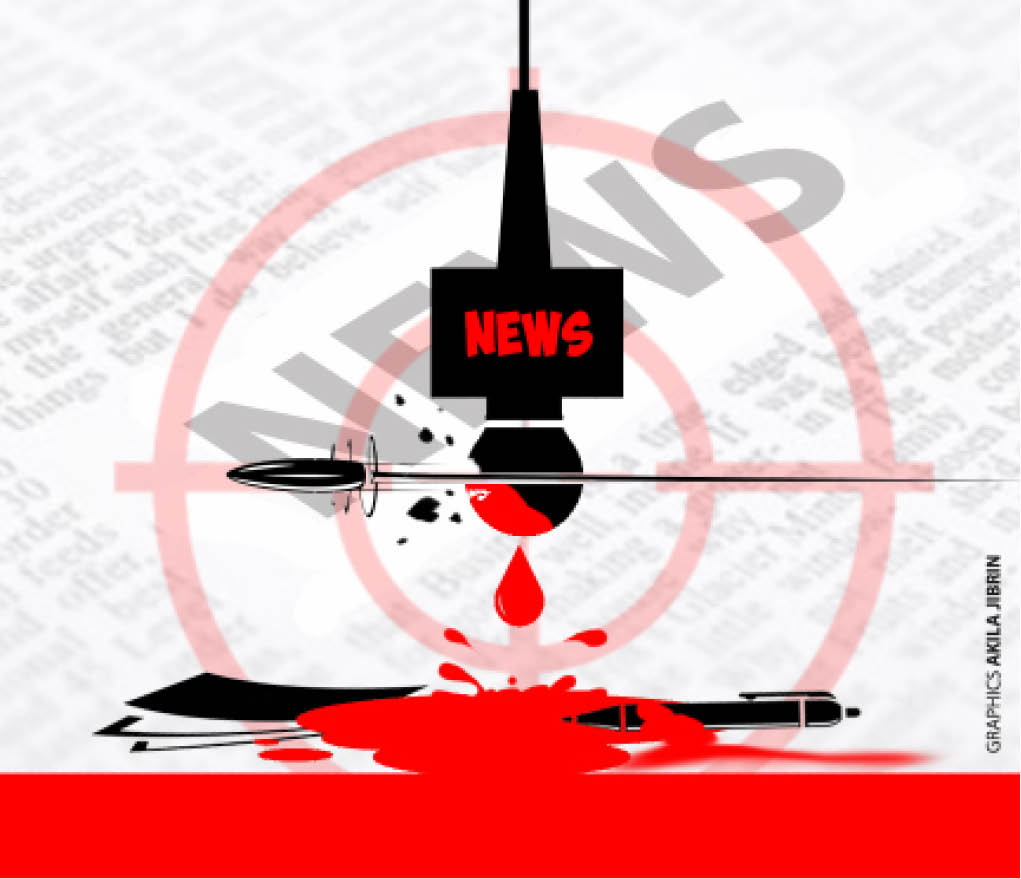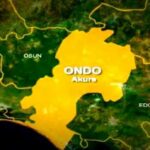The number of journalists murdered in retaliation for their work more than doubled in 2020, as criminal gangs and militant groups targeted reporters working in violent but democratic nations.
This is according to a report by the Committee to Protect Journalists (CPJ) published on December 22 by its deputy director, Jennifer Dunham.
The numbers are worrying and it is clear that even in Nigeria, journalists are not safe.
The co-founder of the Centre Against Brutality and for Safety of Journalists in Africa (CAPSOJA), Barrister Ugochukwu Ezekiel, stated that at least four journalists were killed in Nigeria this year, while many suffered injuries.
The timeline of deaths
In January, Alex Ogbu, an editor with Regent Africa, was killed by the police during a protest by members of the Islamic Movement in Nigeria (IMN) in Abuja.
In the same month, Maxwell Nashan of the Federal Radio Corporation of Nigeria was found bound, gagged and hacked to death in Yola, Adamawa State.
In August, Benjamin Ekom, an executive member of the Nasarawa State Council of the Nigerian Union Journalists (NUJ) was attacked and killed by unidentified men said to be wielding cutlasses and sticks.
Also, in November, Pelumi Onifade, a 20-year-old intern of Gboah TV was shot and killed in Lagos during the #EndSARS protest.
In just the previous year, Precious Owolabi, an intern with Channels TV, was killed by police during the IMN protest in Abuja on July 22, 2019.
The killings have worsened Nigeria’s ranking by the Reporters without Borders (RSF) in 2019 World Press Freedom Index to 120 out of 180 countries.
The latest report claimed that globally, at least 30 journalists were killed in 2020; 21 of those for their work, which it stated was a jump from the previous year’s 10 murders, while others were killed in combat or crossfire or on other assignments that turned dangerous.
“CPJ is still investigating the deaths of 15 other journalists worldwide to determine whether journalism was the motive. The numbers reflect the period from January 1 to December 15, 2020, and the total killings compare with 26 journalists killed with a confirmed motive in all of 2019. Last year’s number was the lowest total killings in CPJ’s records since 2000,” the report said.
Silence of the U.S
The organisation also criticised the silence of the US on the murder of a journalist, Jamal Khashoggi, which was blamed on the Saudi Arabian government, and the treatment of journalists in Iran with 15 journalists jailed by December 1, 2020, while four others were killed since 1992.
“The global climate of impunity and dangerous anti-press rhetoric comes amid the U.S.’s abdication of global leadership on the defence of press freedom under President Trump. Instead of defending journalists and press freedom in principle, the Trump administration’s approach is opportunistic,” the report said.
COVID-19: restricting travels
CPJ stated that combat-related deaths for journalists dropped in 2020 as COVID-19 pandemic ravaged the globe, making it difficult for journalists to travel. Thus, three journalists were killed in the conflict near Idlib in Northern Syria through airstrikes by suspected Russian forces allied with the regime of Syrian President Bashar al-Assad.
Further more, CPJ’s Global Impunity Index indicted countries where journalists are murdered and their killers go free. Citing Mexico, whose President, Andrés Manuel López Obrador, pledged, when he took office in December 2018, to end violence against the press and impunity for journalists’ murders. This promise, the CPJ said, has largely been ignored.
CPJ stated that the president “denigrated Mexico’s media in his daily early morning press conferences, taking a page from the playbook of U.S. President Donald Trump, an attitude viewed with dismay by the country’s journalist community in the light of the dangers they face.”
Other countries where violence, retaliatory killings, or where conditions of incarceration led to the death of journalists in recent years include the Philippines, Honduras, Egypt, Kyrgyzstan, Nigeria, Iraq, and Afghanistan.
The organisation said it began compiling data on the deaths of journalists in 1992, maintaining a database of all journalists killed and those who have gone missing or are imprisoned for their work.
However, the reported killing of 30 journalists in 2020 is a reduction in the RSF’s 49 journalists killed globally in 2019, and at least 43 journalists were reportedly killed in 2018.
Further, the figure of 554 journalists killed in the decade between 2010 and 2020, shows a marked reduction to the 1, 500 journalists killed in the preceding decade, according to separate data from the CPJ and World Press Freedom Review published by the International Press Institute.
Reacting to the murder of journalists, Ezekiel said the journalists themselves have the first duty to protect themselves by being daring and meticulous in their work and following the first law of nature; ‘self-preservation.’
Ezekiel also called on the government to treat journalists like public servants and do everything to protect them whether on or off duty.
“Any assault attempt on their person or property should be treated as a serious crime like obstruction of a public officer on duty. This should attract graver or more serious punishment. It is like assaulting a police officer on duty,” he said.
“I also strongly believe that if our laws are fully implemented, citizens will respect the constitutional duty of journalists. In all, protection of journalists lies with the implementation of our laws and government officials living up to their constitutional mandate of protection of lives and property,” he added.
Insurance covers
Also contributing to the topic, a Senior Advocate of Nigeria, Yusuf Ali, said since journalists regularly embark on risky assignments, it makes it compulsory for employers to put in place insurance covers for them.
“One would also appeal to security agencies and others that journalists should be seen as people carrying out their legitimate work, so when there are crises, they should not become the target of combat practice either left or right or centre,” he said.
“It is quite unfortunate that journalists would have to die in the course of performing their duties,” he added.

 Join Daily Trust WhatsApp Community For Quick Access To News and Happenings Around You.
Join Daily Trust WhatsApp Community For Quick Access To News and Happenings Around You.


